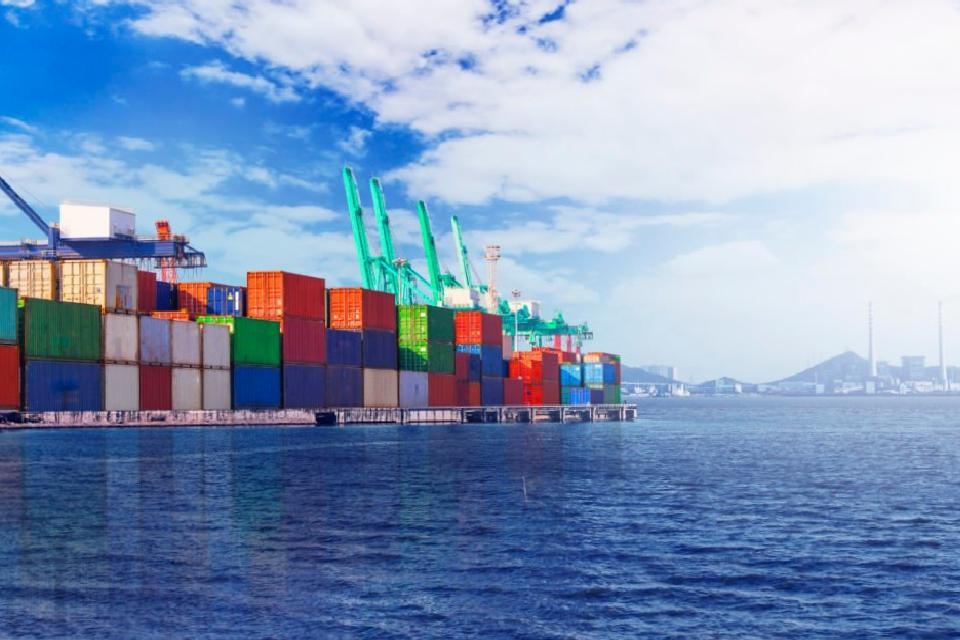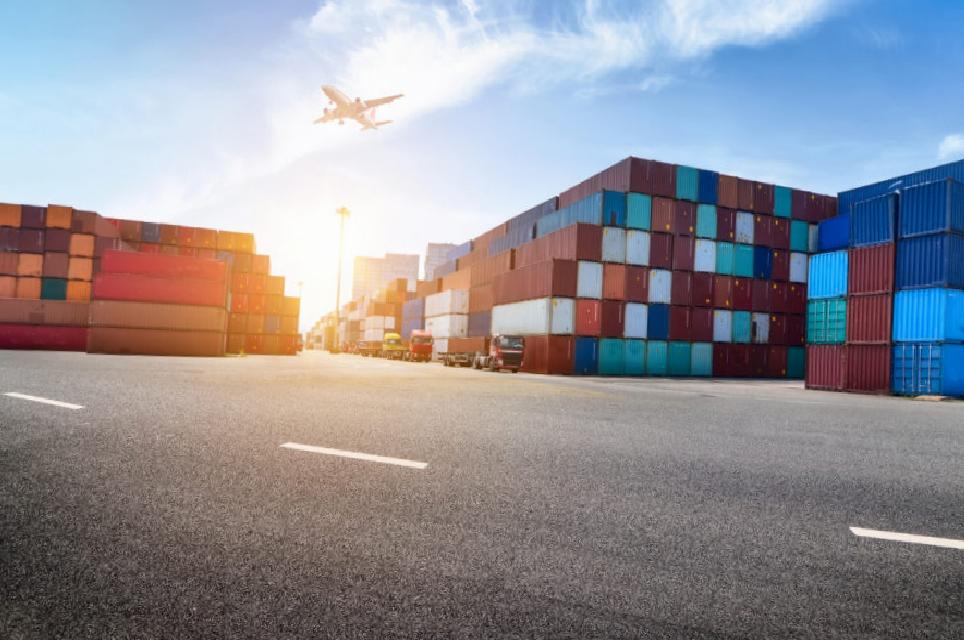Here are the early adopters who recognized the benefits of blockchain applications in logistics and started to try and apply it.
Blockchain technology has taken the world by storm. While most people think that blockchain is limited to cryptocurrencies, the real-world application scenarios are myriad. Revolutionary technology is impacting every industry in the world and will rewrite the rules of business. The logistics sector is the backbone of all businesses in the world. It’s a trillion-dollar industry that grows exponentially every year. Blockchain will change the landscape of the logistics industry. As companies like IBM begin to experiment with technology-based enterprise software and systems, businesses are beginning to see the advantages that blockchain brings in logistics. It can prevent fraud, eliminate inaccuracies, increase data security and transparency, increase efficiency and reduce spending. Few early adopters recognize the benefits of blockchain applications in logistics and have started experimenting and implementing it for an unprecedented advantage.
1. Inventory Tracking
Blockchain technology can be used to create an efficient system that allows different companies to track their products even at micro levels.
Who did it
Multiple food retail companies have partnered with IBM to develop a blockchain-based system that enables tracking of foodstuffs. The alliance includes Walmart, Nestle and Unilever, among others. The technology will allow the company to trace individual foodstuffs back to the farm. Walmart has successfully experimented with blockchain twice. He traced the origins of pork in China and mangoes in Mexico. Ambrosus is another company that uses blockchain for inventory tracking.
How Is It Helpful
How will it be helpful to follow a fruit? Go back to the E. coli epidemic in the US ten years ago, when spinach infected with the microorganism spread the disease. If a similar event occurs in the future, it will be easy to identify infected groups of fruit. There will be no need to destroy the entire stock, only the infected ones. Time is of the essence in managing such events and limiting damage.
2. Shipping
Cargo companies around the world, especially those that support international delivery, recognize the benefits of blockchain technology. The technology could allow the company to track each item while simplifying the current logistics process.
Who did it
As the world’s largest shipping container operator, Maersk has already experimented with blockchain. Together with Dutch Customs and the US Department of Homeland Security, they used this technology to track the movement of their cargo across international borders. Maersk has now worked with IBM to develop highly secure logistics systems that will fundamentally change the global business landscape.
How It is Useful
The system is expected to save billions of dollars for freight forwarding companies by changing existing logistics processes. It will help reduce errors, improve delivery times, and help detect fraud while reducing costs incurred.
3. Billing and Payments
A major challenge in logistics is developing efficient and secure systems for invoicing and payments. Blockchain has already demonstrated its ability to manage transactions effectively with the introduction of cryptocurrencies such as Bitcoin and Ethereum.
Who did it
Tallysticks has developed a blockchain-based platform that can handle invoicing and payments for logistics and other businesses. Based on smart contracts, it automatically confirms a payment corresponding to an invoice. Visa has also jumped into the blockchain majority and launched its B2B Connect payment service.
How It’s Useful
It aims to simplify payments across international borders while ensuring security and transparency. It also enables the establishment of a system that prevents fraud and minimizes errors without involving intermediaries.
4. Authentication Verification
Using blockchain in logistics isn’t just for businesses. It is advantageous for end consumers.
Who made it
Everledger leveraged the blockchain for the diamond industry to determine the authenticity of the diamond’s origin. It addresses the concerns of consumers as well as those involved in the diamond business by using blockchain and cryptography to track each diamond.
How It’s Useful
With the digitization of over one million diamonds, Everledger has improved fraudulent claim detection while building trust and credibility in the diamond industry. At the same time, it prevents fraud and can deal with human trafficking issues all at once. Every owner of the shimmering rock can have peace of mind knowing the origin of their diamonds. Everledger does not plan to stop at diamonds. It adds value to other avenues dealing with high-value products such as fine wines.
 container terminal?Wharf, transport
container terminal?Wharf, transport5. Improving Transparency
Another purpose of implementing blockchain in logistics is to improve supply chain transparency. A major issue plaguing supply chains is the reliability of information, and Provenance is a company tackling this using blockchain.
Who did it
Provenance has experimented with several case studies for blockchain-based supply chains. Collaborated with an international brand that imports coconuts from Indonesia. He developed a system that ensures that farmers who supply coconuts receive fair compensation. The system holds companies accountable for the information they provide and helps ensure it is presented accurately to consumers. It allows companies to engage in allegedly fair trade practices. In another case study, Provenance followed Tuna fish caught by farmers from Indonesia. The project aimed to improve tracking information communication between agents working at different levels of the supply chain. The project has ensured that the data provided is verifiable and traceable using a decentralized system.
How It’s Useful
A big advantage of using blockchain systems for transparency is that B2B logistics provides better visibility and improved reliability and helps build trust between businesses. It will also reduce disputes over bills and prevent the exploitation of workers at the ground level while reducing inspection costs.
6. Create a Fair Shipping Market
Blockchain can be used to create a fair market for companies looking to hire freight forwarders. Transparency in logistics is a must, as shipping some goods worldwide requires more than two dozen different shipping companies, resulting in an overwhelming amount of transactions. Blockchain will help hold each party accountable.
Who made it
ShipChain is working to improve logistics with blockchain. It is a member of BiTA (Blockchain in Shipping Alliance), which UPS has recently joined and aims to develop blockchain platforms for the shipping industry. The system uses a transparent blockchain contracts platform that will easily integrate with systems already in use. It aims to unify tracking between different shippers and carriers to prevent theft. It will create a decentralized marketplace where parties broker a shipping slot based on information listing available slots, cost estimates made, and time taken for delivery.
How It is Useful
This means that freight transportation is within the budget of both small and large companies. Small companies in particular will get a fair deal, as prices vary with supply and demand.

7. Dispute Resolution
One of the biggest problems in freight transportation is dispute resolution of delayed or misplaced cargo. Disputes arise, and companies traditionally hire independent auditors in such scenarios.
Who did it
FedEx, another member of BiTA, has made a side attempt to use blockchain for customer dispute resolution. The company plans to use a blockchain-based ledger to securely store its records.
How It Helps
FedEx will share information with both sender and receiver parties before and after receipt for easier dispute resolution. It will eliminate the need for a third-party solution while deterring fraud.